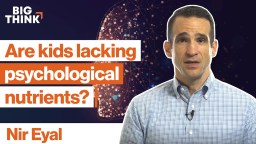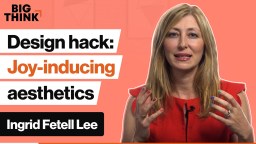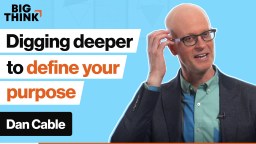psychology
The key to raising indistractable kids is to first determine why they’re distracted.
▸
4 min
—
with
Ultrarunners scored significantly higher on the resilience questionnaire than non-runners.
In order to gain more from spending time alone, it is important to be open to the benefits that solitude can bring.
How does the COVID-19 pandemic affect relationships? One study aims to find out. If you have 20 minutes, take the survey!
Some purveyors of “wellness” sure are sounding like right-wing conspiracy theorists.
Rather than trekking up a mountain, a more accurate metaphor for human development involves navigating the waters of a choppy sea.
▸
6 min
—
with
Johns Hopkins University professor Susan Carnell explains the neuroscience behind eating out of boredom (and how to stop).
All that matters is the here and now.
▸
4 min
—
with
How do you overcome the tension between autonomy and solidarity?
Dr. Robert Emmons and other researchers dig into the positive mental and physical health benefits of expressing gratitude.
People often incorporate lessons from fictional stories into their beliefs, attitudes and value judgments, sometimes without even being aware that they are doing so.
When you stop predicting the future and comparing the present to the past, you can reach a beneficial flow state.
▸
4 min
—
with
Research shows how “aha moments” affect the brain and cause the evolution of creativity.
Your fear of anxiety could be preventing you from treating your anxiety, according to new Penn State research.
Why finding joy is more easily attainable than the pursuit of happiness.
▸
9 min
—
with
Researchers advise using emojis to improve communication under coronavirus isolation.
Our lives have been transformed by the coronavirus pandemic. How can we successfully adapt to the new demands and rules of a society that is sheltering in place? What can […]
▸
with
If you surreptitiously pick your nose, chances are that everyone can see you doing it.
Combining various mindfulness-based interventions (MBIs) can have numerous health benefits, according to new research.
How you think about your work alters your relationship to it.
▸
3 min
—
with
Music, journaling, and spending time with your pets are all science-backed ways to boost mental health during stressful times.
How can you give and receive more productive feedback? Form a psychological contract with a trusted partner.
▸
3 min
—
with
Scientifically, it’s referred to as ‘cancer-related cognitive impairment’ or ‘chemotherapy-related cognitive dysfunction’.
A clean work space, plants, and putting on the right pants all make working from home easier, according to science.
Researchers documented the most common negative side effects of smoking weed, and who might be most susceptible.
Nostalgia is also proven to decrease loneliness and increase resiliency.
Researchers observed “inter-brain coherence” (IBC) — a synchronisation in brain activity — between a musician and the audience.
Sometimes the best way to make changes is when you’re in the middle of a challenging time.
This video game designer’s creations have been said to work “neurological magic.”





























